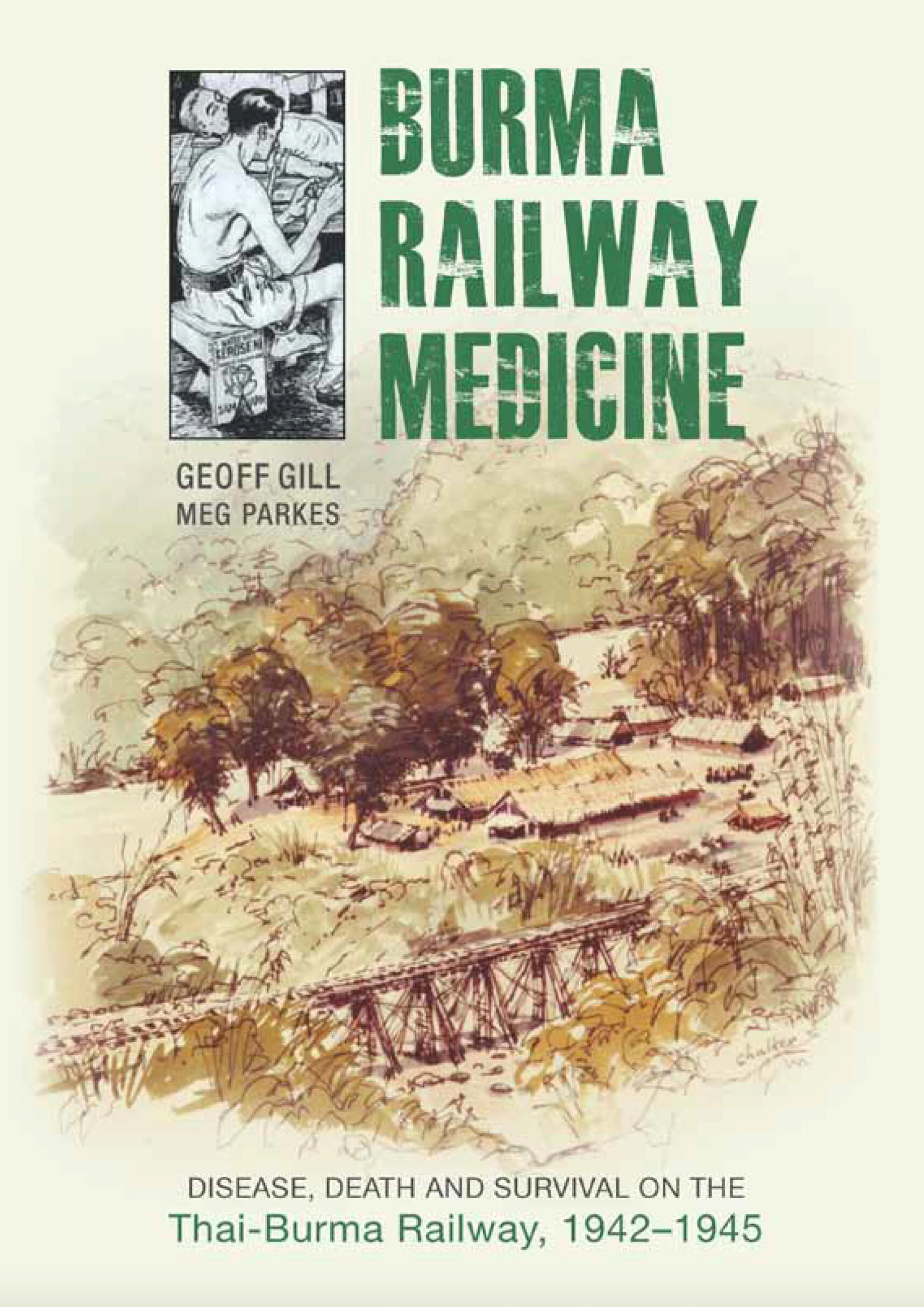
Liverpool School of Tropical Medicine, Palatine Books, and authors Geoff Gill & Meg Parkes would like to invite you to the launch of Burma Railway Medicine - disease, death and survival on the Thai-Burma Railway, 1942–1945
Please register via info@lstmed.ac.uk
A brief presentation will be followed by a drinks reception and book signing
For those who wish to, at 7.30pm there will also be an informal two-course supper with wine afterwards at £15 per person.
To book and pay for supper contact LMI Admin on 0151 709 9125 (ext. 2)
The ‘Death Railway’ was very well named. More commonly called the Thai-Burma Railway, it was a major project during Allied Far East imprisonment under the Japanese. Over 60,000 prisoners worked on its construction, the majority of whom were British, and some 20% died before release in 1945.
Working conditions were appalling, the climate inhospitable, and food supplies grossly inadequate, making the POWs terribly vulnerable to a plethora of tropical infections and syndromes of malnutrition. No medical care was given by their Japanese captors, and it fell to the Allied POW doctors and medical orderlies to treat the sick, which they did with little in the way of medical equipment or drugs. However, with remarkable ingenuity and inventiveness they dealt with with recurrent attacks of malaria and dysentery, as well as tropical ulcers and beriberi, and devastating epidemics of cholera.Their efforts undoubtedly saved hundreds of lives.
This revealing book presents for the first time an in-depth analysis of the medical crisis in the Allied prisoner of war (POW) camps on the Thai-Burma Railway, between 1942 and 1945.
While it is written mainly from a British perspective, the authors acknowledge the contributions made by the many different nationalities that they worked alongside.
Burma Railway Medicine is the result of the long post-war collaboration between the Liverpool School of Tropical Medicine (LSTM) and British ex-Far East POWs. Professor Geoff Gill led research which encompassed both the physical and psychological aftermath of these men’s experiences. In more recent years the LSTM Far East POW project has moved to medical historical enquiries into the POW experience, including a major oral history project led by co-author Meg Parkes. Part of this work is included in the book in the chapter entitled “Voices From the Railway”.
The aim of Burma Railway Medicine is to critically recount remarkable events which deserve recording and understanding. It is an historical work that makes the detail of the medical battle to survive accessible to everyone, be they lay, healthcare or academic readers; and it has real relevance to medicine today, as well as to society in general.
Burma Railway Medicine: disease, death and survival on the Thai-Burma Railway, 1942–1945 is fully illustrated, over 250 pages, paperback with flaps, and priced at £14.99.
The book is available in May 2017 from booksellers, and from the publisher with free uk delivery (use code TROPFP). To order your copies call 01524 840111 or visit www.carnegiepublishing.com
Also available and now in its 2nd edition is Captive Memories: Far East POWs & Liverpool School of Tropical Medicine, £12.99, using the same code as above for free delivery.
Copies of both books are available from LSTM library (not by mail order), all profits from these sales go to further FEPOW research